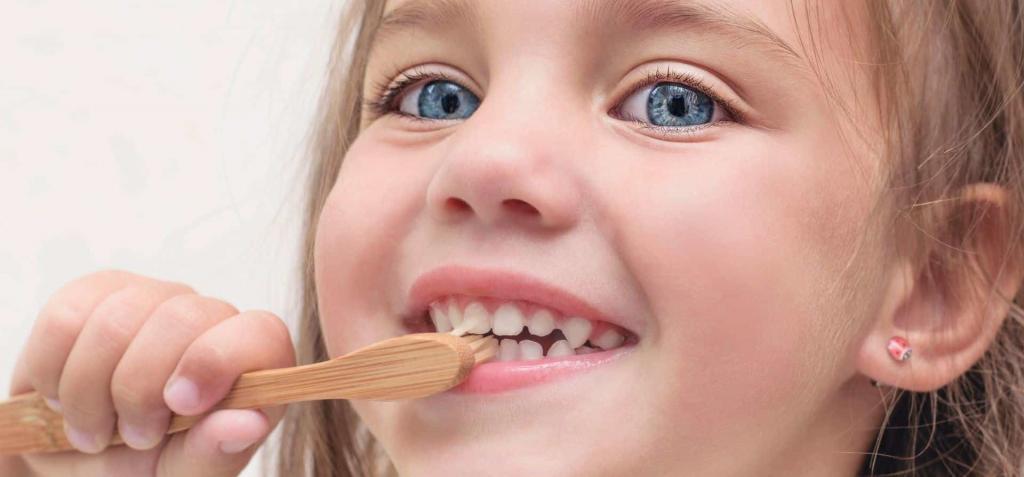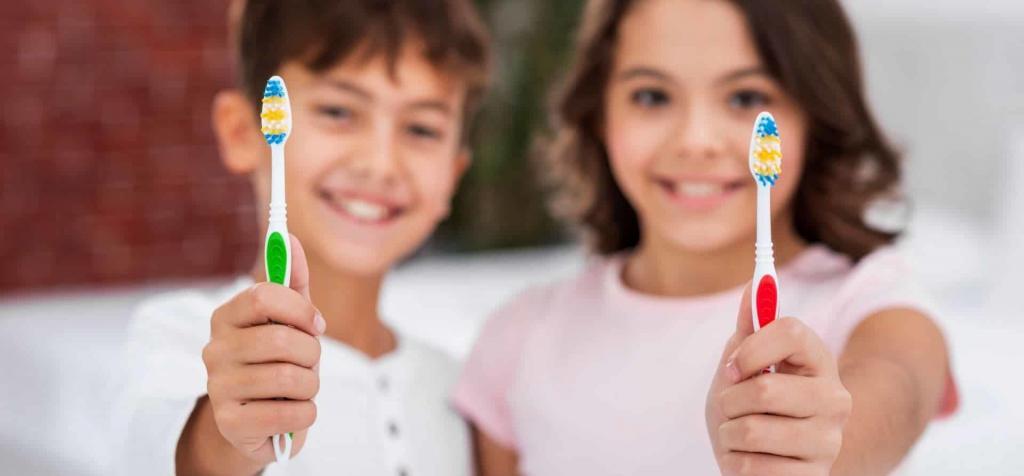The first teeth are a big event in every parent's life - we look forward to them like first steps. However, it is not always easy to take care of baby teeth afterwards. Unfortunately, there is still a belief that it is not worth worrying about them, because they will fall out anyway. This is a big mistake that can cause problems with eating and sleeping, as well as later problems with permanent teeth, such as crowding and malocclusion.
Deciduous teeth in children - basic information
The first milk teeth usually erupt around the age of six months. However, this should not be taken rigidly - there are children who have their first teeth as early as three months of age, as well as around nine months of age.
Teething is not an easy time in the life of a toddler and his parents. It can be painful and irritating, and sometimes lasts for weeks. The most painful teeth are usually the canines (the so-called "threes") and the second molars ("fives"). The order in which the teeth appear is similar in all children and is as follows:
- The lower incisors, followed closely by the upper ones, i.e. the four medial incisors
- Bicuspids, or lateral incisors, usually first upper and then lower
- The deciduous molars, or "fours"
- Fangs
- Second molars
A total of twenty teeth with a slightly bluish sheen may not appear until just before the third birthday. Up to this limit, one should not worry and even rejoice. After all, dentists agree that late milk teeth in children mean stronger permanent teeth in adults.

Is it worth caring for milk teeth in children?
A child's healthy baby teeth have a major impact on its future health and dental health. Unfortunately, there are still many parents who underestimate milk teeth, believing that they are not permanent teeth. According to government statistics, as many as one in fourth five-year-old in England has caries that has appeared on at least 3 deciduous teeth.
These teeth are much less mineralised than permanent teeth, hence bacteria very quickly lead to their complete deterioration. Sometimes two months are enough for a tooth to have to be extracted. This in turn causes the permanent teeth to erupt in an abnormal way and malocclusion develops.
In addition, the mandible, which is developing without milk teeth, can become deformed, which can even end up changing the appearance of the toddler's face. Such neglect may require surgical treatment, so it is best to simply avoid it.
In addition, the aforementioned decay spreads very quickly from deciduous teeth to permanent teeth, resulting in large cavities in the young person.
Decayed or missing milk teeth can also lead to disorders of the digestive system. This is because missing milk teeth in children can cause problems with eating solid foods.
Then there is the toothache itself, which prevents the toddler from playing, sleeping and enjoying their childhood.

When is it a good idea to start caring for your children's deciduous teeth?
The answer may surprise you, but even before they appear. In infants, it is advisable to wash the gums with boiled water, and when the first teeth appear, daily gum brushing becomes a necessity. Remember to use toothpastes dedicated to children, i.e. those that contain a low amount of fluoride.
You can also start getting your child used to brushing his teeth even before they appear. To do this, use a silicone finger brush. This will also provide relief for the swollen gums caused by the eruption of the first teeth.
It is very important to brush the teeth after every meal and, most importantly, immediately before bedtime. It is important to remember that the toddler should not eat or drink anything afterwards. The exception is clean water.
It is advisable to avoid sweets and thick sweet juices that coat the teeth, as well as milk. When feeding modified milk, night drinking increases the risk of tooth decay and milk teeth may have to be treated. Breast-fed babies do not experience this problem, as breast milk has bacteriostatic properties.

Brushing your teeth is not enough
In addition to getting your child into the habit of brushing their teeth, plan visits to the dentist. The first visit should take place after the baby's first deciduous teeth have erupted. Further visits should be every 6 months on average. In addition to assessing the condition of your child's teeth, our dentists will choose the right treatment for your child, such as fluoridation, ozone treatment and varnishing to protect teeth against bacterial growth.
With regular visits, you will not only ensure that your little one's teeth are healthy, but you will also get them used to and accustomed to the dental surgery.
If you realise the importance of regular visits to the dentist, but your little one is almost panic-stricken, read our article Fear of the dentist in a child - how to combat it? and then make an appointment to adaptation visit in our practice.

What does the treatment of deciduous teeth look like?
If your toddler's teeth are breaking down, you should not delay visiting the dentist. A qualified dentist will choose the right treatment and, above all, apply it in a way that is as unproblematic as possible for the toddler. Baby teeth should be sealed and varnished so that they do not fall out prematurely, as the consequences can be devastating.
Don't forget about proper nutrition either, so you can read about that in the article Anti-caries diet in children. If you have any questions write or call to us.

